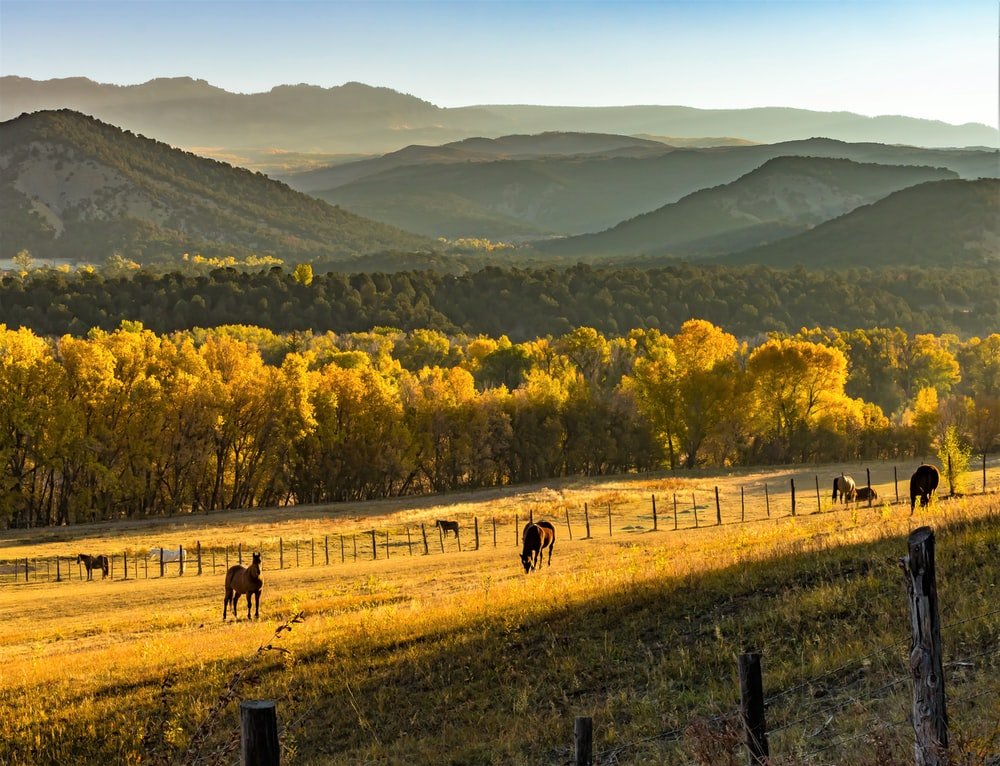
How can some people write so beautifully?
1/ Two of my favorite writing techniques:
1/ Two of my favorite writing techniques:
Writing technique 1: Don't always be direct
Instead of saying "the day was hot," you could write "even the bugs were looking for air conditioning."
That's what I call a second-order description: describe the *impact* caused by the hot day—instead of saying it's a hot day.
Instead of saying "the day was hot," you could write "even the bugs were looking for air conditioning."
That's what I call a second-order description: describe the *impact* caused by the hot day—instead of saying it's a hot day.
Why? Poetic writing is often one step removed from a straightforward description of the events.
The more steps you're removed while still communicating your point, the more "elegant" it might feel.
For example, let's start with a plain statement:
The more steps you're removed while still communicating your point, the more "elegant" it might feel.
For example, let's start with a plain statement:
"The day was hot."
With a second-order description, you'd describe the heat by stating the effect it has on its environment:
"The day melted our popsicles." (Without mentioning the heat.)
With a second-order description, you'd describe the heat by stating the effect it has on its environment:
"The day melted our popsicles." (Without mentioning the heat.)
Readers infer that the day was therefore hot.
As C.S. Lewis said:
"Instead of telling us a thing was 'terrible,' describe it so that we’ll BE terrified."
Let's go deeper now:
As C.S. Lewis said:
"Instead of telling us a thing was 'terrible,' describe it so that we’ll BE terrified."
Let's go deeper now:
With a *third*-order description, we describe something by stating its effect but *not mentioning the cause at all:*
"The day melted our popsicles."
This now becomes →
"Our popsicles melted."
There's ambiguity as to *why* our popsicles melted. What caused it?
"The day melted our popsicles."
This now becomes →
"Our popsicles melted."
There's ambiguity as to *why* our popsicles melted. What caused it?
With a bit of imagination, readers piece it together: it was the hot day.
Now we're *engaging* readers' minds and not spoon-feeding everything. It's part puzzle, part poetry, part imagination.
We're getting them to lean in.
However, our sentence isn't quite interesting yet...
Now we're *engaging* readers' minds and not spoon-feeding everything. It's part puzzle, part poetry, part imagination.
We're getting them to lean in.
However, our sentence isn't quite interesting yet...
To make it unique, we can describe the effect in a way that's unconventional, counterintuitive, or witty.
Such as:
"Even the bugs were looking for air conditioning."
That's a lot more interesting than:
"The day was hot."
Such as:
"Even the bugs were looking for air conditioning."
That's a lot more interesting than:
"The day was hot."
In other words, you can engage readers' brains by making them do a bit of work and *meditate on your implications.*
This applies to movies/TV too. If editors don't show you the violence but show you its aftermath, your brain works to piece it together.
You lean in.
This applies to movies/TV too. If editors don't show you the violence but show you its aftermath, your brain works to piece it together.
You lean in.
In Zack Snyder's 300, there's a great shot where the final lethal arrow is thrown by a soldier. Instead of showing the arrow travel through the air, Zack just shows the shadow that it casts on the ground.
He shows effect, not cause.
He shows effect, not cause.

Don't do this all the time, but selectively... it's enriching.
Writing tactic 2: Your unfiltered voice
Go ahead and ask your friends what it's like to talk with you. And record yourself in conversation and listen back.
Your friends might mention your:
Writing tactic 2: Your unfiltered voice
Go ahead and ask your friends what it's like to talk with you. And record yourself in conversation and listen back.
Your friends might mention your:
• Tone of voice
• Sense of humor
• Eccentricities
• Viewpoints
If you convey those traits in your nonfiction writing—without self-censoring—readers recognize your voice.
In other words, nonfiction voice is not your choice of words! Voice is your unfiltered personality.
• Sense of humor
• Eccentricities
• Viewpoints
If you convey those traits in your nonfiction writing—without self-censoring—readers recognize your voice.
In other words, nonfiction voice is not your choice of words! Voice is your unfiltered personality.
So, in early drafts, discard your reflex to self-censor.
Talk vulnerably like you do with friends.
In later drafts, you can remove sensitive details. Until then, treat writing like a confession. At least, that's how I do it :)
Talk vulnerably like you do with friends.
In later drafts, you can remove sensitive details. Until then, treat writing like a confession. At least, that's how I do it :)
C. Robert Cargill wrote:
The authenticity of who you really are, as opposed to who you wish everyone thought you were, is what your audience is looking for.
The authenticity of who you really are, as opposed to who you wish everyone thought you were, is what your audience is looking for.
Inauthentic voice, by the way, happens when you read a lot of someone else’s work and absorb their style.
It also happens when you write "smart"—using words like plethora or myriad.
If you don’t use those in conversation, don't use them when writing. That's a fraudulent voice.
It also happens when you write "smart"—using words like plethora or myriad.
If you don’t use those in conversation, don't use them when writing. That's a fraudulent voice.
There are more writing techniques I want to start covering, so I will tweet them regularly.
Next time, I want to cover "vividness." I describe vividness as articulating the rarely articulated nuances of life. It makes you say, "Ahh, that’s how I'd put words to that feeling."
Next time, I want to cover "vividness." I describe vividness as articulating the rarely articulated nuances of life. It makes you say, "Ahh, that’s how I'd put words to that feeling."
Here are Venkatesh Rao's remarks on the vividness of author David Foster Wallace:
"His writing is looking at a pinprick-sharp photo—compared to my blurry ones. He picks words that work 100x better than mine. He has a 15 megapixel camera and a tripod, while I have a 3 megapixel point-and-shoot. A bigger vocab isn't enough. His skill: matching words to needs."
More on vividness soon.
For now, a closing tangent:
Beginning writers should write a lot, but once they're good and have habits, they don't HAVE to publish EVERYTHING they create.
Consider publishing your blog/newsletter/pod as often as it’s actually *interesting.*
Because:
For now, a closing tangent:
Beginning writers should write a lot, but once they're good and have habits, they don't HAVE to publish EVERYTHING they create.
Consider publishing your blog/newsletter/pod as often as it’s actually *interesting.*
Because:
In an era of content overload, I’ve seen no evidence you must stay top-of-mind on a weekly cadence.
People love novelty, and no writer generates profound insights on a fixed schedule.
I look for writers who publish sporadically. When they post, they truly have something to say.
People love novelty, and no writer generates profound insights on a fixed schedule.
I look for writers who publish sporadically. When they post, they truly have something to say.
• • •
Missing some Tweet in this thread? You can try to
force a refresh






